News
04 February 2020
Not a band-aid but a feeder solution for our coasts
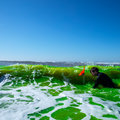
At the weekend Matthieu de Schipper likes to surf the waves but on weekdays he studies how they transport the sand along the coast and up and down beaches. ‘Sea level rise is a threat to coasts across the globe. I want to use the forces of nature to provide engineering solutions to this problem on a global scale’. At the Sand Motor project in the Netherlands De Schipper is training students to do the necessary fieldwork. In all weathers.
01 February 2020
What the Wadden can teach us
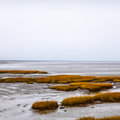
Intertidal zones are crucial for the protection of our coast and as stop-overs for migrating birds. But, increasingly, many of these sand and mudflats are disappearing permanently underneath the waves. Cynthia Maan investigated how by cooperating with nature and using a systems-based approach these precious resources can be saved.
30 January 2020
Making dikes safer with a bass guitar
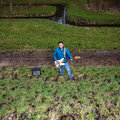
Playing a bass guitar on top of a dike. It’s not something you see a TU Delft scientist do every day. Yet this is exactly how post-doc Juan Aguilar-López tested his experiment on dike monitoring with the use of fiber optic cables. A technology which could greatly improve dike safety in the future.
25 January 2020
Plastic-free Rivers
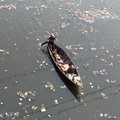
The oceans of the world are filling up with plastic waste carried there by rivers. Where it all comes from no one knows. Wim Uijttewaal, professor of Experimental Hydraulics and professor of Resources & Recycling Peter Rem are on a mission to make the rivers plastic free. ‘We want to turn the removal of plastic from rivers into big business. And we want to devise a plastic waste radar that will show where the plastic is, and how it got there.’
22 January 2020
Climate adaptation starts (roof) top down
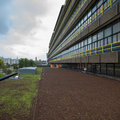
TU Delft is going to become a little bit greener on top: the roof of one of the lecture rooms of the faculty of Civil Engineering and Geosciences has been turned into a sustainable ‘polder roof’. The green blue roof can collect, store and discharge rainwater in a controlled manner. For researcher Olivier Hoes (Watermanagement) the roof is a field lab to research how this smart roof deals with heavy rains and heat stress.